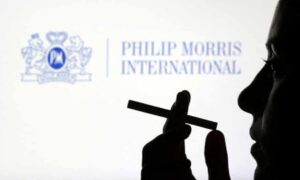
The tobacco company Philip Morris has sponsored courses for doctors in multiple countries, in what critics have called a “grotesque” strategy.
Medical education programmes on quitting smoking and harm reduction in South Africa, the Middle East and the US have been supported by Philip Morris International (PMI) or its regional subsidiaries, according to advertising material seen by the Guardian.
The World Health Organization (WHO) said there was a risk that public health efforts could be undermined and called for partnerships of this kind to be banned.
Dr Tess Legg, of the Tobacco Control Research Group at the University of Bath, said sponsoring medical education was part of a “strategy to influence how science is used in medical practice and an attempt to rebuild the industry’s credibility among health professionals”.
Nicholas Hopkinson, a professor of respiratory medicine at Imperial College London, said: “Based on its market share (around 15%), and the global death toll from smoking (more than 8 million annually), Philip Morris kills at least a million people every year. The idea that it should have any role in medical education is grotesque.”
The sponsored courses allow participants to collect credits showing they are engaging in post-qualification learning. Typically, doctors must collect a certain number of these “continuing medical education” (CME) or “continuing professional development” (CPD) points annually to continue practising.
Hopkinson called for bodies that provide or regulate medical education to “produce explicit statements and policies that tobacco industry involvement is completely forbidden”.
Dr Rüdiger Krech, the director of health promotion at the WHO, called on certification authorities to ban partnerships with tobacco and related industries in medical education. “There’s a clear commercial interest that could spread misinformation undermining public health efforts,” he said.
“Health workers should be supported by education that is evidence-based, transparent and held to the highest ethical standards.”
One doctors’ organisation in South Africa, the Alliance of South African Independent Practitioners Associations (Asaipa), has offered webinars on harm reduction in public health “sponsored by Philip Morris South Africa”.
Sharon Nyatsanza, the deputy director of South Africa’s National Council Against Smoking, said the sponsorship may breach local laws designed to reduce the influence of the tobacco industry.
She said: “We hope public health professionals know who PMI really is. PMI – which is the largest [global] cigarette manufacturer – has a history of funding research, medical professionals and setting up front groups in ways meant to advance its own interests and in conflict with public health.”
Along with many South African public health organisations and professionals, she has written to the Health Professions Council of South Africa urging it to set out a clear policy that tobacco industry funding and sponsorship would not be allowed. They have also asked that CPD credits for events sponsored by a tobacco company be withdrawn.
In a statement, Asaipa said the content of all CPD webinars was reviewed “to ensure that no products of any partner are being promoted during the educational sessions, and all statements made during these sessions are based on clinical data and evidence”.
The statement added that Asaipa was “committed to upholding the highest standards of integrity, transparency and ethical conduct in all our endeavours” and would “conduct a thorough review of our sponsorship and involvement with PMI to ensure our actions align with our mission and values”.
